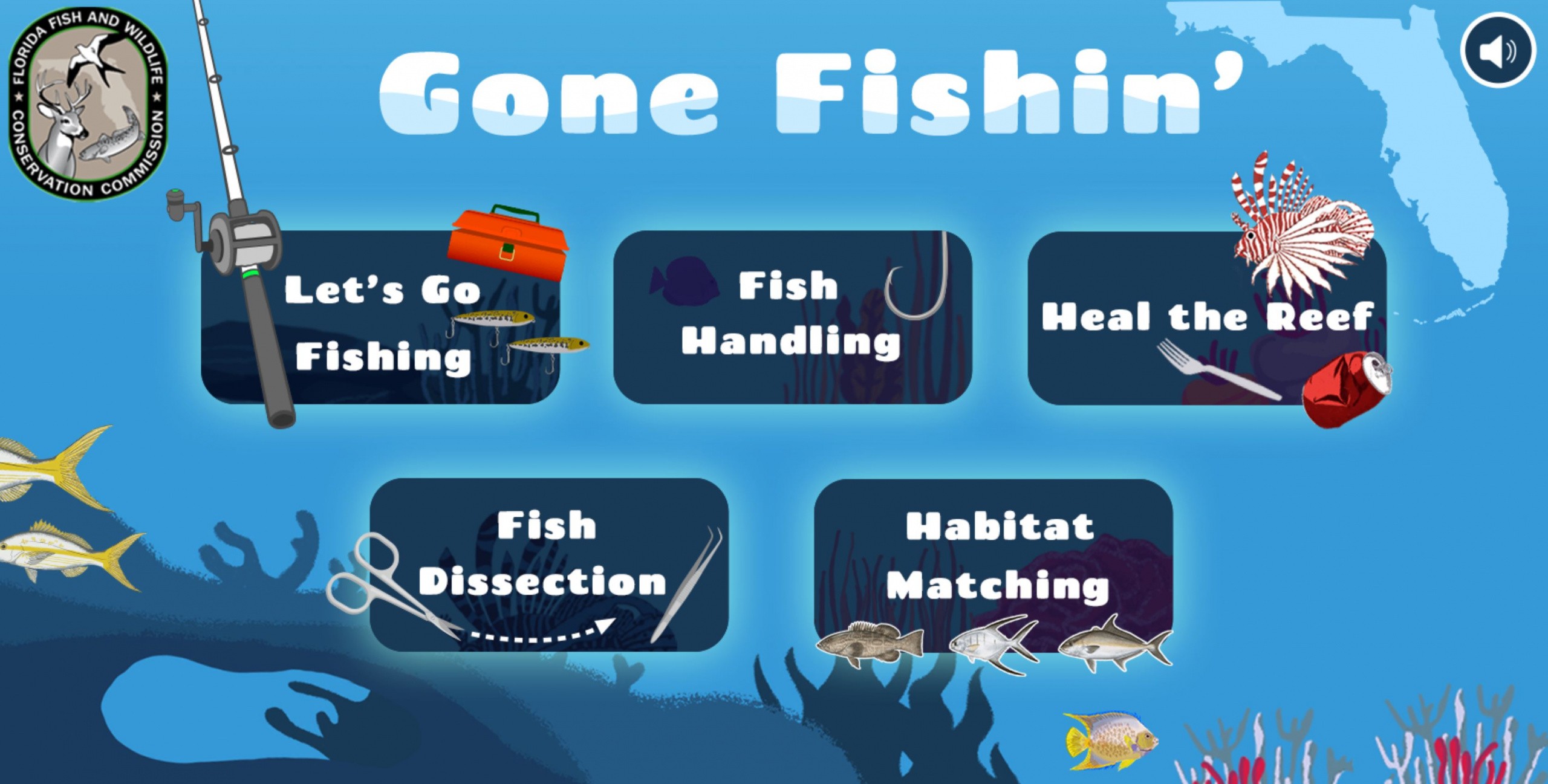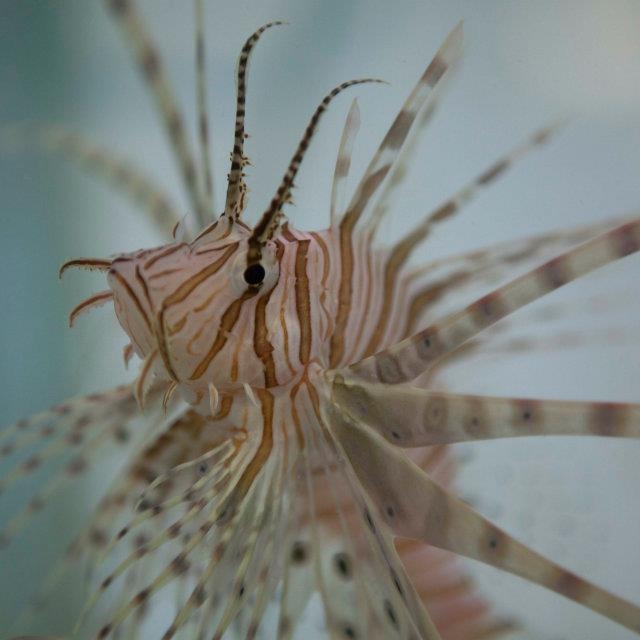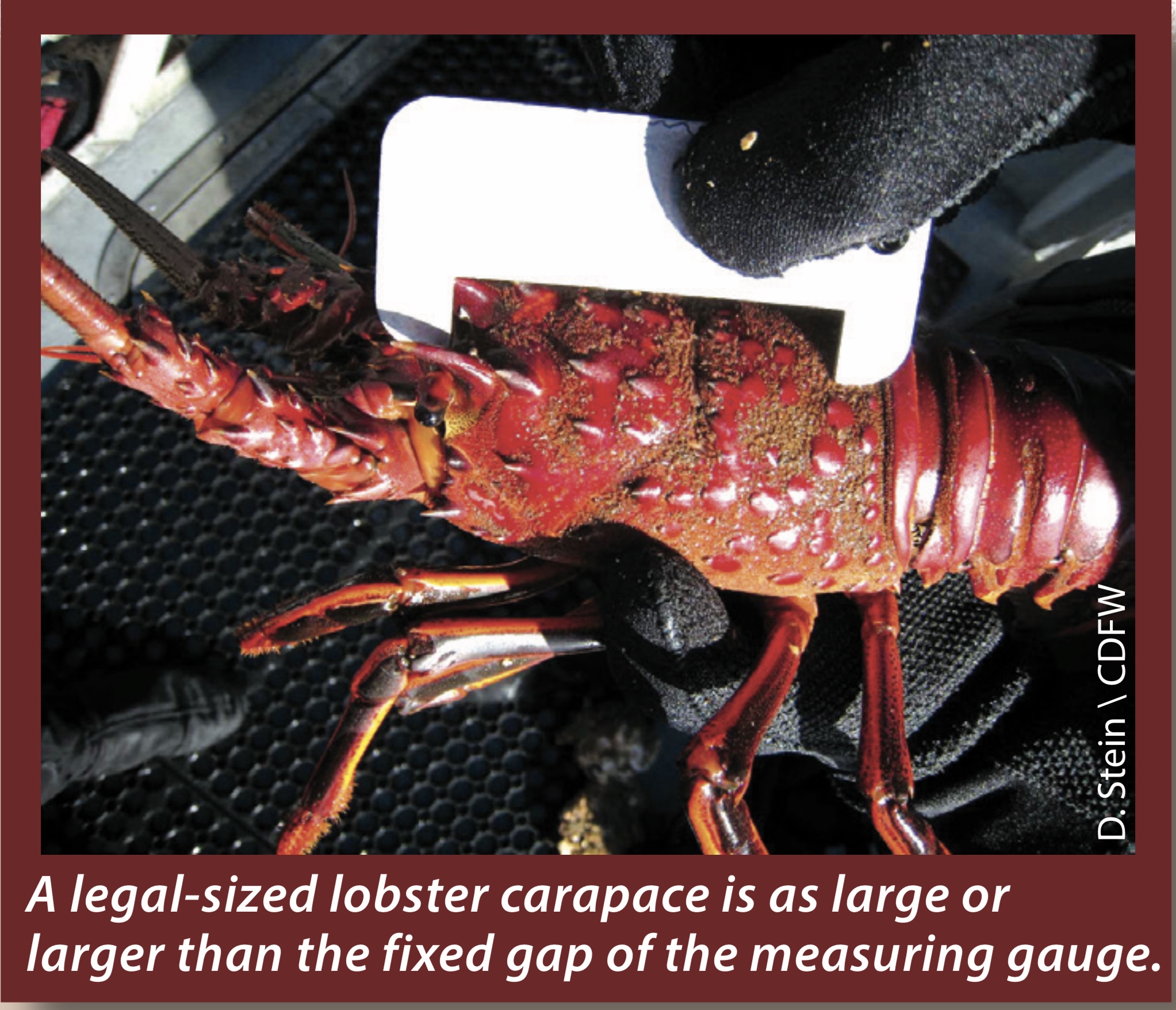Marine conservation with interactive games

Click on Image As students return to the classroom for the new school year, educators and parents can encourage continued learning with Gone Fishin’ games. The Florida Fish and Wildlife Conservation Commission (FWC), in partnership with … … Read entire article »
Filed under: Aqualung, Artificial Reefs, Boats, Conservation, Divetalking, Earth, Education, Featured, Fish, Games, Grouper, Lionfish, Lobster, Manatee, ocean, Reefs, Reference, Training, Wrecks
Invasion of the lionfish – From Reef to Table

There is a species invading the Eastern United States seaboard, the Gulf of Mexico, Caribbean, Bahamas, Bermuda, Mexico, Central and South America with unprecedented, alarming speed. Armed with venomous spines, a non-discriminating palate, ability to survive in various salinities and depths, high reproductive rate, a gluttonous ambush predator voracious of your food supply. The invader appears exotic to some, to others an opportunity. This non-indigenous species is commonly referred to as: Lionfish. Lionfish Watch this National … Read entire article »
Filed under: Adv. Open Water, Article, Conservation, Divetalking, Earth, Education, Featured, Fish, Lionfish, ocean, Products, Promotions, Reefs, Reference
California Spiny Lobster Season

Recreational lobster season opens at 6:00 a.m. on the Saturday preceding the first Wednesday in October and closes at 12:00 a.m. on the first Wednesday (night) after the 15th of March. **The season no longer starts at midnight for safety reasons** For current regulations, please visit the Current California Ocean Recreational Fishing Regulations for Point Conception to the U.S. – Mexico Border.Recreational Bag Limit: Seven lobsters per person.Minimum Legal Size Limit: Three and one-fourth inches, measured … Read entire article »
Filed under: Article, Earth, Education, Featured, Fish, Lobster, Spiny Lobster
Six Reasons Why You Should Not Swim with Wild Spinner Dolphins
Would you swim with wild spinner dolphins if you knew that they were trying to sleep? Swimmers and boats that come to visit wild spinner dolphins close to shore during the day could be disturbing their rest and potentially harming them. Wild spinner dolphins feed off-shore at night and return to sheltered bays and coastlines during the day to rest, socialize, tend to their young, and avoid predators. Continue Reading More HERE … Read entire article »
Filed under: Alert, Article, Conservation, Diver, Divetalking, Dolphin, Earth, Education, Fish, ocean, Open Water, Reference, Training
Reef Assassin Act
House of Representatives Passes Congressman Matt Gaetz’s “Reef Assassin Act” Amendment to H.R. 200 July 12, 2018 Press Release Washington, D.C. — The U.S. House of Representatives yesterday unanimously passed Congressman Matt Gaetz’s (FL-01) “Reef Assassin Act” amendment to H.R. 200, the Strengthening Fishing Communities and Increasing Flexibility in Fisheries Management Act. The amendment will encourage the elimination of lionfish from our waters. It allows individuals to trade 100 harvested lionfish tails for one tag authorizing fishing for coveted reef fish: red snapper, gag grouper, triggerfish, and amberjack. The lionfish population has exploded over the last three decades; they can now be found throughout the Atlantic coast, the Bahamas, and the Gulf of Mexico. A single female lionfish releases 30,000 eggs every two to four days — two million eggs per year. Lionfish harm … Read entire article »
Filed under: Alert, Article, Artificial Reefs, Conservation, Diver, Divetalking, Earth, Education, Featured, Fish, Lionfish, ocean, Recognition, Reefs, Reference, Report
Lionfish Education Exhibit Program
To increase awareness and ensure consistent, accurate messaging about the lionfish invasion in Florida waters by supporting the creation of lionfish educational exhibits in public facilities around the State FWC has initiated a Lionfish Education Exhibit Program. To learn more about the program and to see if you qualify to participate, follow the following link. Lionfish Education Exhibit Program … Read entire article »
Filed under: Article, Artificial Reefs, Earth, Education, Featured, Fish, Lionfish
Lionfish Harvest Charter Program
Program Overview Goal: The FWC Lionfish Control Team is asking for assistance from Florida’s divers and dive charter businesses to increase lionfish harvesting efforts . The program aims to incentivize dive charters to conduct lionfish-specific harvesting trips in an effort to increase the number of lionfish removed from Florida waters. To read more about how to apply for this program, click Requirements & Application Ready to purchase your lionfish hardvesting equipment? Click here to be taken to Zookeeper … Read entire article »
Filed under: Article, Boats, Diver, Earth, Featured, Fish, Lionfish, Preservation, Promotions, Reefs, Reference
Sunken Conservation
Sunken Conservation Three mini stories showing the efforts to create, maintain reefs and the invasion of lionfish off Florida shores. … Read entire article »
Filed under: Aquatica, Artificial Reefs, Cameras, Conservation, Divetalking, Earth, Education, Featured, Fish, Lionfish, ocean, Preservation, Promotions, Recognition, Reefs, Turtles, Video
Food Poisoning from Marine Toxins
By Vernon E. Ansdell Seafood poisoning from marine toxins is an underrecognized hazard for travelers, particularly in the tropics and subtropics. Furthermore, the risk is increasing because of factors such as climate change, coral reef damage, and spread of toxic algal blooms. CIGUATERA FISH POISONING Ciguatera fish poisoning occurs after eating reef fish contaminated with toxins such as ciguatoxin or maitotoxin. These potent toxins originate from small marine organisms (dinoflagellates) that grow on and around coral reefs. Dinoflagellates are ingested by herbivorous fish. The toxins are then concentrated as they pass up the food chain to large carnivorous fish (usually >6 lb, 2.7 kg) and finally to humans. Toxins are concentrated in fish liver, intestinals, roe, and head. Gambierdiscus toxicus, which produces ciguatoxin, may proliferate on dead coral reefs more quickly than other dinoflagellates. … Read entire article »
Filed under: Artificial Reefs, Boats, Conservation, Diver, Divetalking, Earth, Education, Emergency/FirstAid, Featured, Fish, ocean, Open Water, Reefs, Reference, Report, Training
Hammerhead now under U.S. Federal protection under the Endangered Species Act.
The federal government today listed four key populations of scalloped hammerhead sharks under the Endangered Species Act. The National Oceanic and Atmospheric Administration, for the first time in history, gave a shark species federal protections under the Endangered Species Act. The scalloped hammerhead shark is considered globally endangered by the International Union for the Conservation of Nature (IUCN). The species is targeted primarily for its fins but is also killed as “by-catch” in fisheries targeting other species. NOAA Fisheries listed scalloped hammerhead sharks inhabiting the Eastern Atlantic Ocean and Eastern Pacific Ocean as “endangered.” The agency listed scalloped hammerhead sharks living in the Central and Southwest Atlantic and Indo-West Pacific as the less-serious status of “threatened.” The federal agency declined to list scalloped hammerhead sharks that inhabit the Northwest Atlantic or Central Pacific. “This … Read entire article »
Filed under: Article, Conservation, Divetalking, Earth, Education, extinction, Featured, Fish, ocean, Preservation, Reference, Report, Sharks
Expansion of US marine protected zone could double world reserves
By Matt McGrath Environment correspondent, BBC News The US plans to create the world’s biggest marine protected area (MPA) in the middle of the Pacific Ocean. The White House will extend an existing protected area, known as the Pacific Remote Islands Marine National Monument. Fishing and drilling would be banned from an area that could eventually cover two million sq km. The extended zone would double the world’s fully protected marine reserves. Rare species The Pacific Remote Islands Area is controlled by the US and consists of seven scattered islands, atolls and reefs that lie between Hawaii and American Samoa. Essentially uninhabited, the waters that surround these remote islands are home to a wide range of species including corals, seabirds, sharks and vegetation not found anywhere else in the world. In 2009, President Bush declared … Read entire article »
Filed under: Alert, Artificial Reefs, Conservation, Divetalking, Earth, Education, extinction, Featured, Fish, ocean, Preservation, Recognition, Reefs, Reference, Report
Slow life – A must watch
Daniel Stoupin is a PhD student in the University of Queensland. His research is in the field marine biology. Mixing his passions of biology and photography, Daniel has produce stunning photos and videos. “My interest in photography, especially in photomicrography, came from the scientific background. Working with microscopic protists during my first research years and later swimming countless nights with glowing plankton in the ocean opened my eyes on the diversity and complexity of life that we can’t see without tools. Although I am obsessed with marine life, particularly microscopic one and whatever glows in the dark, my photography interests are growing and eventually this website will change its name and become a lot more diverse in content.” – Daniel Stoupin http://vimeo.com/danielstoupin/slowlife More pictures from Daniel ““Slow” marine animals show their secret life under high … Read entire article »
Filed under: Article, Conservation, Diver, Divetalking, Earth, Education, Featured, Fish, ocean, Photography, Recognition, Reefs, Reference
Florida Fish and Wildlife Conservation Commission, FWC
April, 2014 Commission Meeting Time: 8:30am each day Dates: April 15 – 17, 2014 Place: Florida Public Safety Institute 85 Academy Drive Havana, FL 32333 https://www.tcc.fl.edu/Current/Academics/FPSI/Pages/Directions.aspx This meeting is open to the public 8:30 a.m., Wednesday, April 16, there will be a presentation on the subject of LIonfsh Lionfish – Lionfish are invasive marine species that pose a threat to native marine species and ecosystems. Three draft rules will be proposed to prevent further lionfish introductions and facilitate efforts to remove these non-native predators. Harvest by divers using either spearing gear or hand held nets is currently the primary means of lionfish population control. Persons diving by means of a rebreather are currently prohibited from harvesting any marine species in state waters. A proposed draft rule would create an exception to allow persons using rebreathers to harvest lionfish. In addition, there are several … Read entire article »
Filed under: Artificial Reefs, Divetalking, Earth, Education, extinction, Featured, Fish, Lionfish, ocean, Preservation, Rebreather, Reefs, Reference, Report
Narcosis, The Great White Seen at Ginnie Springs
**** FLASH ***** Narcosis the Great White discovered at Ginnie Springs. The individuals who found Narcosis writes: “My son-in-law and I found Narcosis in the bowels of Ginnie Springs. He attacked us….but we were able to fend him off. He still calls Ginnie home.” See the clip of the attack. Though Narcosis has thought to have been docile, this is the first report of an attack. Though there is no real danger of injury from Narcosis, she is still considered a safe and friendly Great White and loves to interact with divers. So, should you find Narcosis during your dive within the Ginnie Cavern, snap a photo and send it to Divetalking along with a brief description of the occurance. We will post your find here on Divetalking. … Read entire article »
Filed under: Cavern, Diver, Divetalking, Earth, Education, Featured, Fish, Games, Open Water, Photography, Promotions, Recognition, Report, Springs
